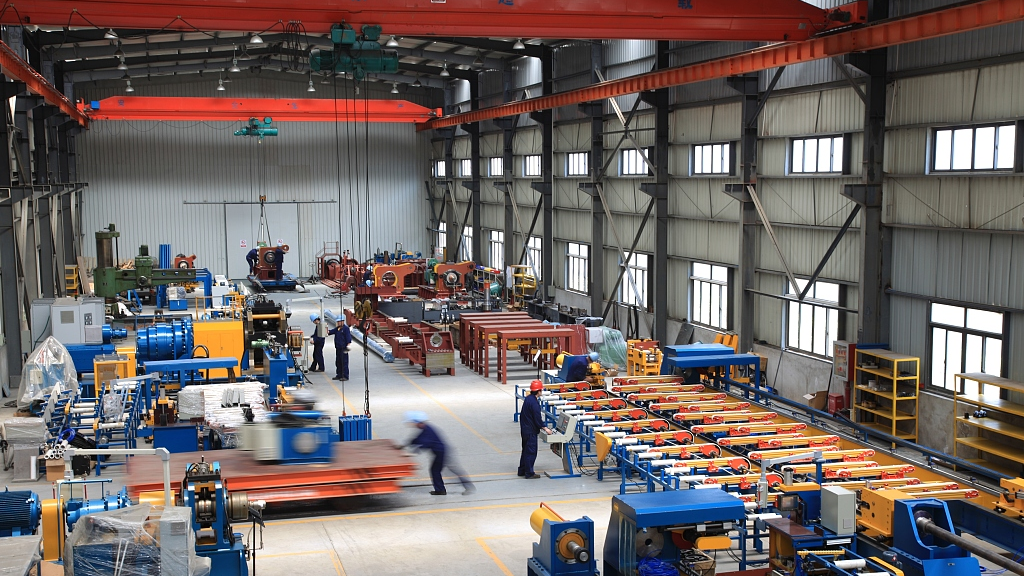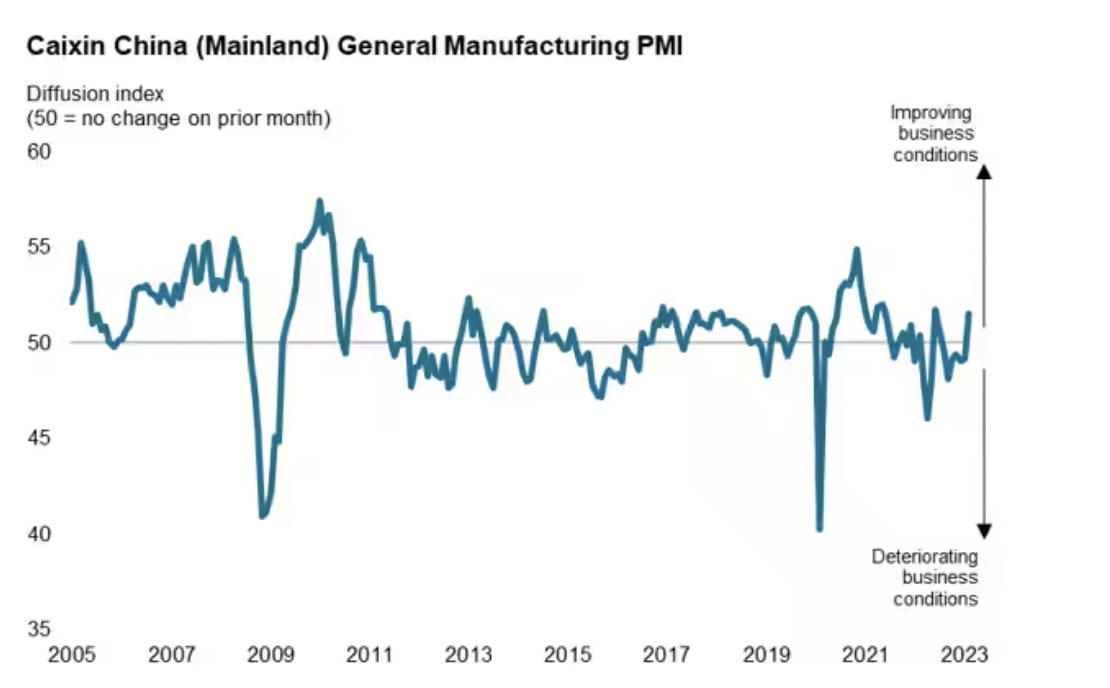
The picture shows a morden factory in China./CFP
The picture shows a morden factory in China./CFP
China's factory activity expanded at its fastest pace in more than a decade in February, data released on Wednesday showed, as the economic stabilization policy measures further took effect and business confidence in the manufacturing sector gathered momentum on easing of the country's COVID-19 restrictions.
The purchasing managers' index (PMI) for China's manufacturing sector came in at 52.6 in February, up from 50.1 in January, data from the National Bureau of Statistics (NBS) showed Wednesday, to the highest reading since April 2012. A reading above 50 indicates expansion, while a reading below reflects contraction.
In February, businesses accelerated their resumption of work and production as stabilization policy measures further took effect and the impact of the pandemic receded, said senior NBS statistician Zhao Qinghe. This meant China's economy has continued to rebound, he added.

Source: Caixin, S&P Global Market Intelligence
Source: Caixin, S&P Global Market Intelligence
Released on the same date, the Caixin/S&P Global manufacturing PMI also rose, reaching 51.6 last month, up from 49.2 in January. This marks the first monthly expansion since last July and the highest reading since June.
The official survey is focused on large and state-owned firms whereas the Caixin index centers on small firms and the coastal regions and includes a number of exporters.
The latest strong PMI data from Caixin was aligned with the official survey, showing China's factory activity gained steam.
Meanwhile, business confidence continued to strengthen in February, with the Caixin's gauge of manufacturing expectations rising in February to its highest level since March 2021 and above its long-term average. Companies widely anticipate output to get a boost in coming months amid expectations of a sustained recovery in customer demand.
"The economy saw a faster pace of recovery as supply and demand expanded, overseas demand surged, employment started to rebound, and logistics recovered at a faster pace," said Wang Zhe, senior economist at Caixin Insight Group.
"But the impact of the pandemic remains far-reaching. Currently, the foundation for economic recovery is not yet solid, and it will take time to fully restore production and social order to normal.”
Wang noted that policies in the future should focus more on increasing people's income and improving market expectations to restore and expand consumption.